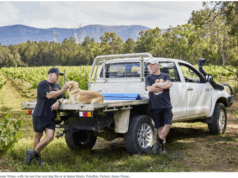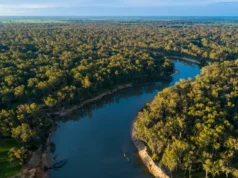
Growing up in New Zealand, my winter hiking expeditions in remote mountains held the promise of the unlikely luxury of cheesecake, a simple treat that made the toils of the day worth every second. The chill of winter meant you could mix up a packet of supermarket cheesecake and leave it outside your mountain hut in the snow to set. It seemed at the time like the epitome of indulgence, an extravagant (but in no way undeserved) reward for effort, and I swear nothing has ever tasted so good.
Scale up the concept and it’s not that different from the lavish inducements offered today by the world’s leading adventure travel companies. The basic principle is the same – everyone needs something to look forward to at the end of the day.
Pioneers in the field understood this from the start. Abercrombie & Kent began 62 years ago with a Bedford truck and a sterling silver ice bucket, an early signalling of the operator’s intention to fuse daytime adventures with after-hours opulence. Butterfield & Robinson launched around the same time, going on to specialise in luxury guided cycling trips. Their motto of “Slow down to see the world” sent a message that the trips were more about lifestyle than Lycra. Great company, luxe lodgings, local cuisine and enriching cultural experiences were what mattered. The bike was really just a conduit for connection.
‘There’s a realisation that life’s short, so let’s make sure we live it’
That yearning for connection through active travel has never been stronger. An Allied Market Research study last year showed the global adventure tourism market will be worth nearly $US2 trillion ($3 trillion) by 2032, up from $US325bn in 2022. John O’Sullivan, CEO of adventure tourism company Experience Co, and former head of Tourism Australia, puts the surge down partly to a post-pandemic shift in priorities. “People are moving things from their bucket list to their to-do list. There’s a realisation that life’s short, so let’s make sure we live it.” He also says guided walking tours, such as the Maria Island and the Arkaba walks (both designated Great Walks of Australia), are particularly popular now, as guests seek to combine immersion in nature, wildlife and culture with high-end culinary experiences.
James Kavanagh, CEO of Flight Centre’s Global Leisure, notes a recent spike in demand for international adventures. “People are seeking out journeys full of immersive, educational experiences, ranging from safaris in southern Africa, to scuba diving off the coast of Costa Rica or heading out on snowmobiles in search of the Northern Lights in Swedish Lapland.” He says Flight Centre has also seen substantial increases in bookings for known thrill-seeking destinations such as Sri Lanka, Peru and Canada.
Read the full story here


